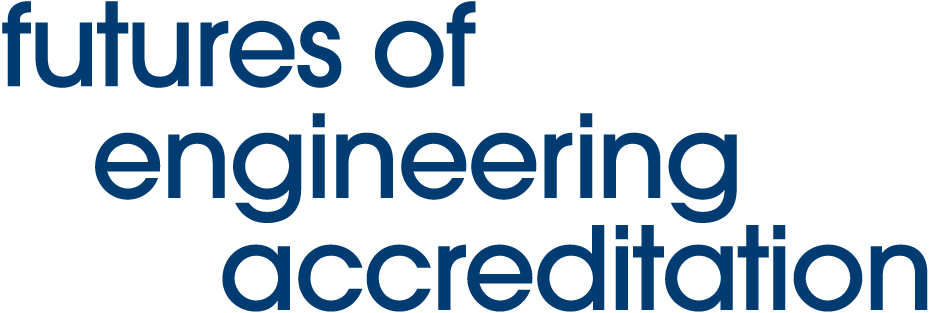This year marks a major milestone for the Futures of Engineering Accreditation (FEA) project as it completes its final phase. The project published its final deliverable, the Path Forward Report, in November, which has been formally submitted to the Engineers Canada Board for discussion at their December 2024 meeting. The 18 recommendations contained in the Report reflect the project’s efforts over three years to engage members of Canada’s engineering ecosystem to examine the current accreditation system, understand how it is serving contemporary needs, and consider how it can chart a new path for the future of the profession. The recommendations have been informed by hundreds of interest holders who served on the Steering Committee and task forces, shared feedback, and participated in FEA’s engagement activities. The project team is incredibly grateful to everyone who participated in these discussions and provided valuable insights throughout the course of this work.
The FEA project began this year with two eight-week sprints, during which the project’s task forces worked hard to turn ideas that were generated in 2023 into concepts for the future accreditation system. In the spring of this year, the task forces published their work in two important documents, which together laid out the project’s initial proposals for revising the purpose and scope of accreditation and introducing a Full-Spectrum Competency Profile (FSCP) to serve as the framework for a National Academic Requirement for Licensure (NARL) and the transition to an outcomes-focused accreditation system.
View the Purpose of Accreditation document.
View the Academic Requirement document.
Following the publication of these two documents, the FEA project led an intensive two-day collaborative design session in Toronto, Ontario, where interest holders considered the implications of the proposals on the engineering ecosystem. There were 36 participants at this session, which included members of the Canadian Engineering Accreditation Board (CEAB), the Canadian Engineering Qualifications Board (CEQB), Engineers Canada staff, and Engineers Deans Canada (EDC), along with the FEA Steering Committee and Regulator Advisory Group. Readers are encouraged to view the summary of the co-design session here.
Among other themes, the session highlighted the importance of collaborative design as a feature of the FEA project and, moving forward, the accreditation system itself. From the beginning, this project has tried to champion a collaborative approach and believed the accreditation system had much to gain by introducing a way of working that would bring different groups into conversation with one another around challenging and consequential topics. FEA’s recommendation to continue down a path of increased communication and collaboration between those who oversee and participate in engineering accreditation is based in part on the feedback received during this session.
Another important outcome of the session was a suggestion from interest holders to undertake a pilot study before adopting significant structural changes to the accreditation system. The project pursued this idea, and the Path Forward Report recommends a pilot study focused on examining a subset of competencies from the proposed FSCP and NARL as a first step to test the design, functionality, and feasibility of these proposals .
After collecting feedback from this session and other touchpoints with interest holders, the FEA Steering Committee began to develop the Path Forward Report. In September, prior to the Report’s publication, regulators, the CEAB and CEQB, and the National Admission Officials Group (NAOG) all had the opportunity to learn about the Report through a series of nine shareback sessions in which the project team presented FEA’s research findings and recommendations. A separate in-person workshop was held with the Engineers Canada Board, regulator CEOs and presidents, Chairs of the CEAB and CEQB, and the EDC designate in October. Over 150 people joined these engagements to learn about the Path Forward Report and its proposals.
The project team believes the Report presents a compelling case for how the accreditation system can evolve to meet new demands and the needs of interest holders while preserving what has made it an overall exceptional system for many years. The project team encourages everyone to read the Path Forward Report and consider how its recommendations can inform engineering accreditation in Canada.
The project team continues to work with the Engineers Canada Board and staff to identify priority areas for 2025 based on the vision and recommendations of the Path Forward Report, as the transition to Engineers Canada’s 2025-2029 Strategic Plan direction, Realizing accreditation and academic assessments, takes place.
Sincerely,
The FEA Project Team
Date posted

